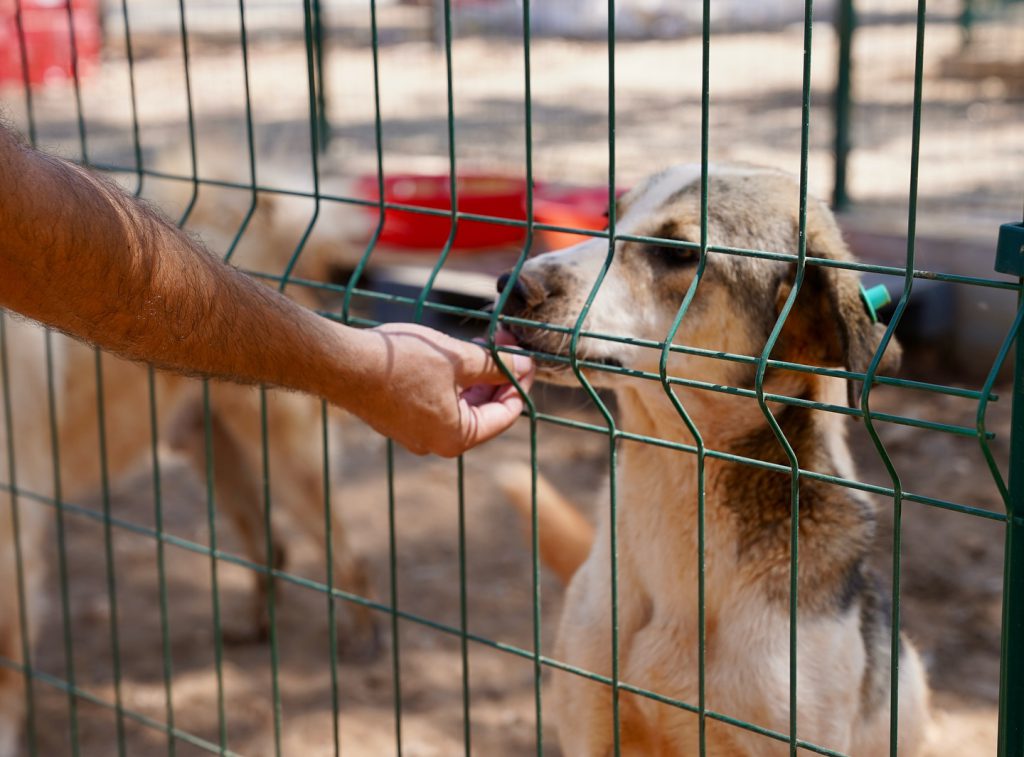Welcome to our midweek round-up of the latest news and updates from Fethiye and across Turkey.
Curated from various news sources
Renovation Work at Fethiye Municipality Animal Shelter Progressing Rapidly
FETHIYE, MUĞLA — Renovation work at the Fethiye Municipality Animal Shelter is moving forward at pace, following the completion of the allocation process earlier this year.
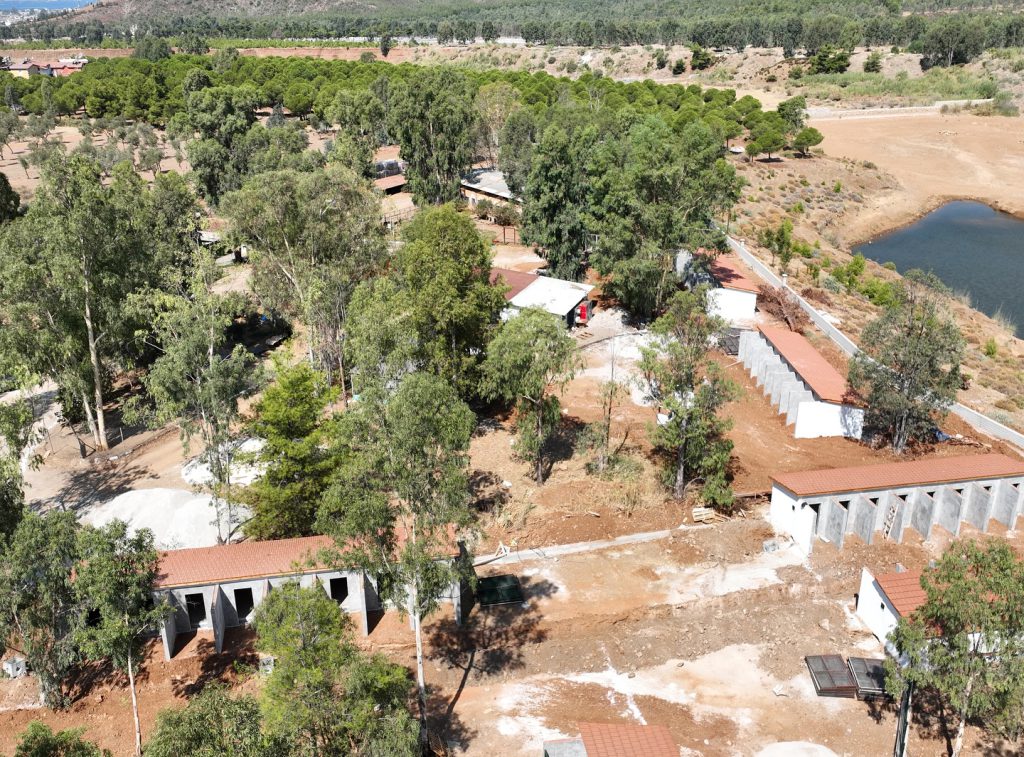
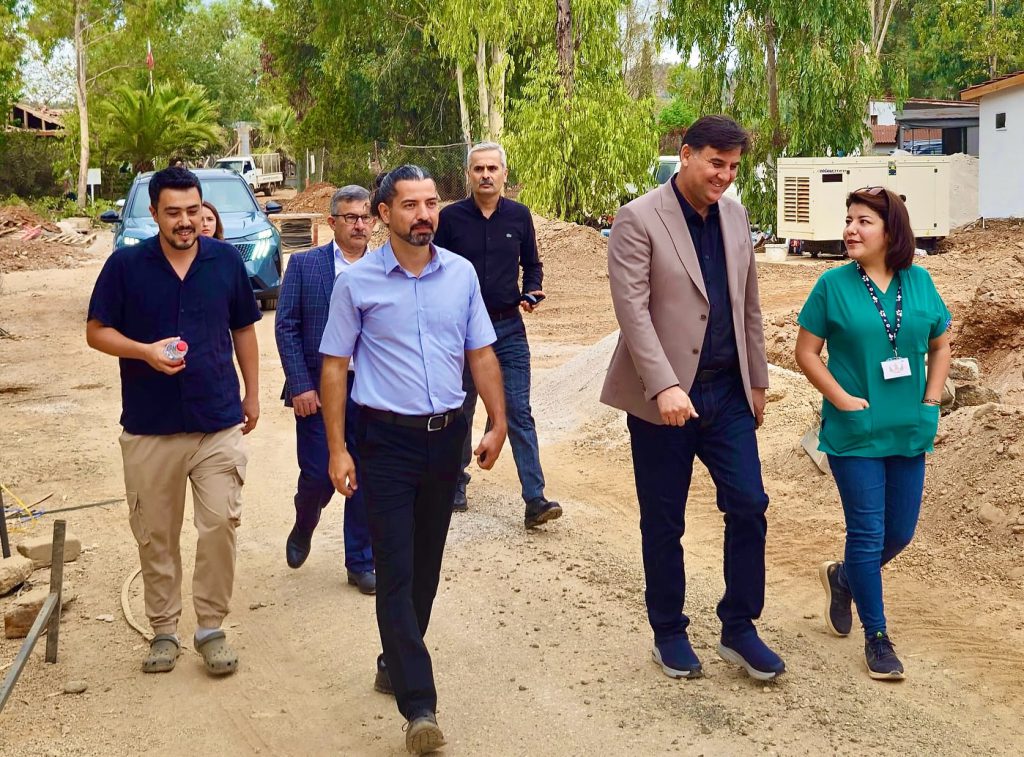
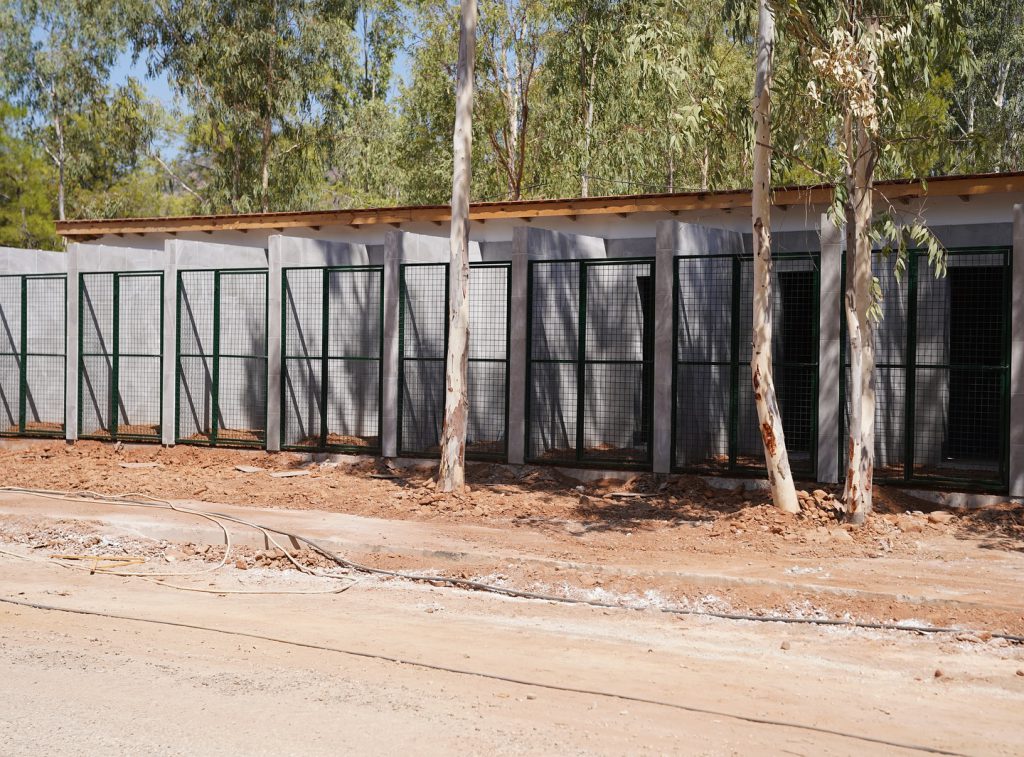
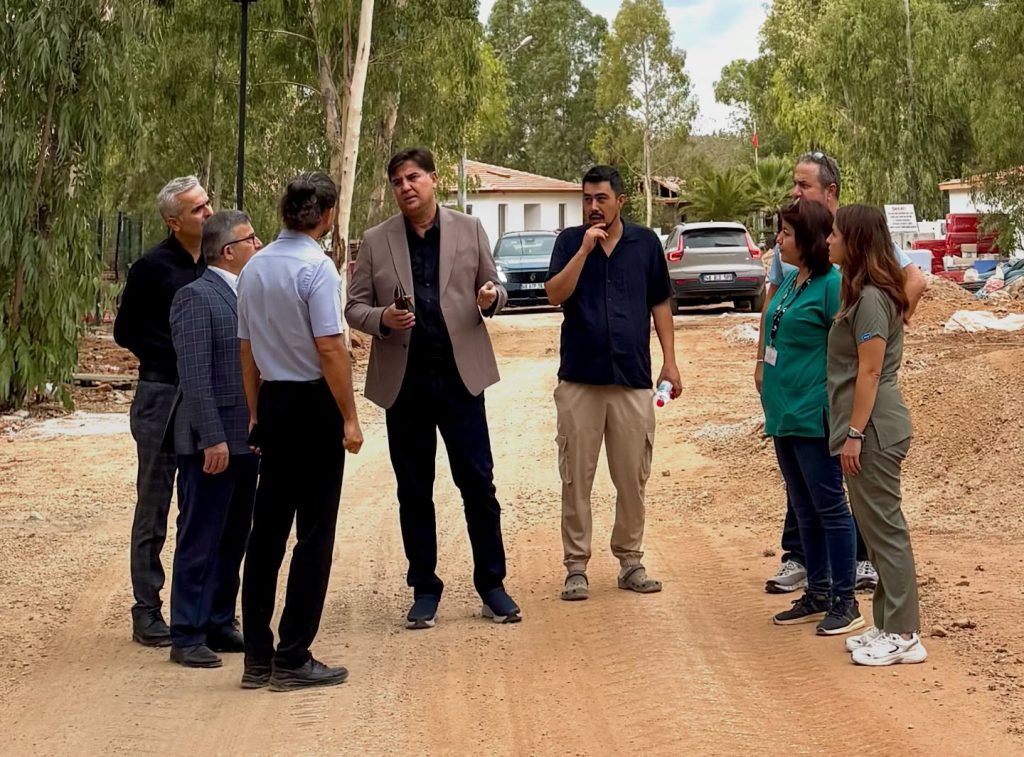
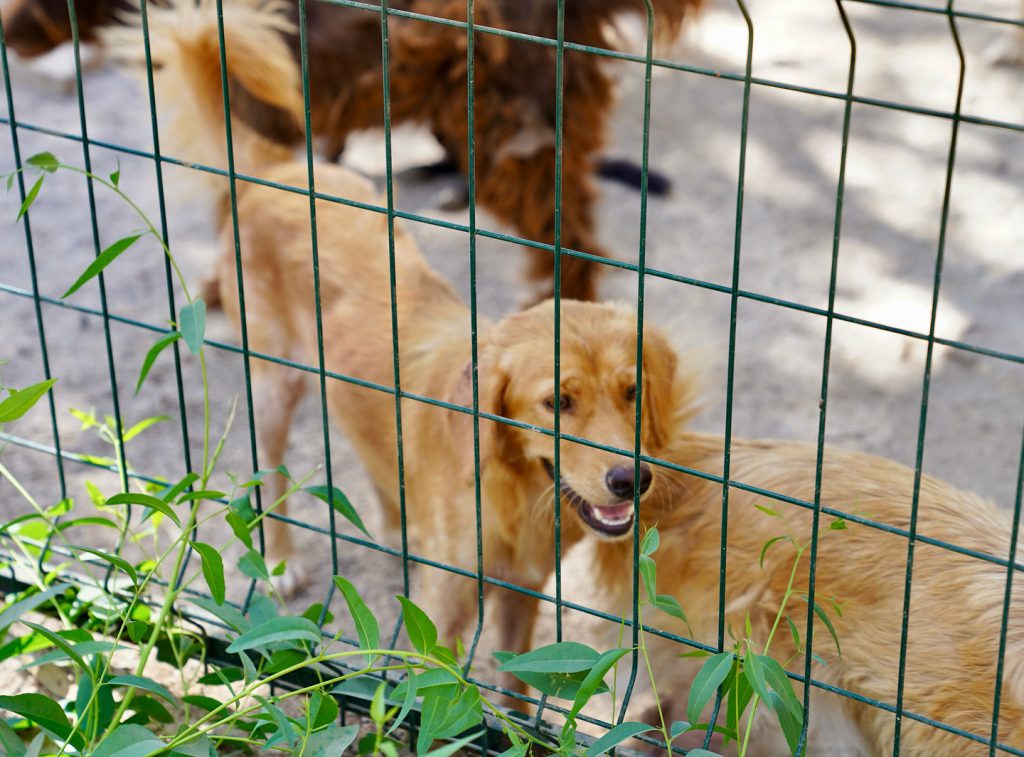
Municipal officials carried out on-site inspections on Monday, reviewing the current progress of construction, meeting with shelter staff, and visiting the animals under care.
Once completed, the shelter will span 37 acres, featuring 1,950 square metres of indoor space across 21 separate blocks. The facility will include a reception building, administrative units, a fully equipped operating room, specially designed kennels for cats, dogs, and horses, as well as paddock areas.
Fethiye Municipality emphasised that the project is being carried out with meticulous attention to detail, with the aim of providing the best possible conditions for the animals.
Source: Fethiye Belediyesi
Greenhouse Farming in Fethiye Faces an Uncertain Future
FETHIYE, MUĞLA — While Fethiye is widely recognised as one of Turkey’s leading tourism destinations, agriculture remains a vital source of livelihood for many residents, particularly in rural neighbourhoods. Yet, greenhouse producers say the sector is under growing pressure as rising costs and falling prices threaten their survival.
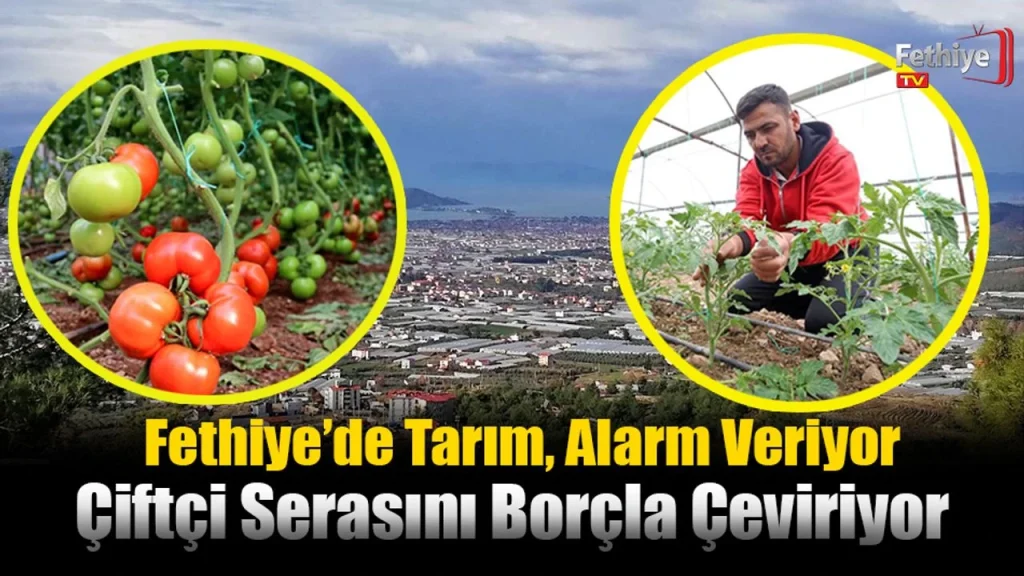
Greenhouse farming, traditionally a cornerstone of Fethiye’s agricultural economy, is losing its appeal. Producers face mounting expenses from the outset, covering everything from greenhouse nylon and steel to irrigation systems, seedlings, pesticides, fertilisers, and even the rental of beehives for pollination. Seasonal challenges such as heavy rains and winter frosts add further strain, leaving many farmers burdened with debt before their crops are ready for market.
Once harvest begins, growers often turn to the Karaçulha Wholesale Market to sell their produce. However, despite production costs that require a minimum price of 30 Turkish Lira per kilogram to break even, tomatoes and other vegetables are typically sold for just 10 to 15 Lira per kilogram—forcing many producers to operate at a loss.
The financial pressure means farmers frequently carry debt into the next season. In some cases, producers have even begun dismantling existing greenhouses to build new ones, hoping to cut losses and adapt to changing conditions.
Local growers warn that unless structural issues are addressed, Fethiye’s agricultural sector—long a backbone of the district’s economy—could face an uncertain future.
Source: https://www.fethiyetv.com/fethiyede-tarim-alarm-veriyor-1
President Kökten: “Ölüdeniz’s Chronic Problem Must Be Solved Urgently”
ÖLÜDENIZ, FETHIYE — Muhammet Kökten, President of the Ölüdeniz Tourism Development Cooperative, has called for urgent action to address long-standing infrastructure problems that resurface whenever heavy rain hits the region.
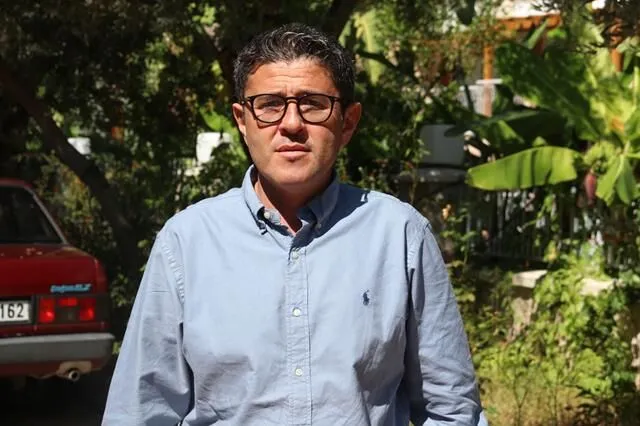
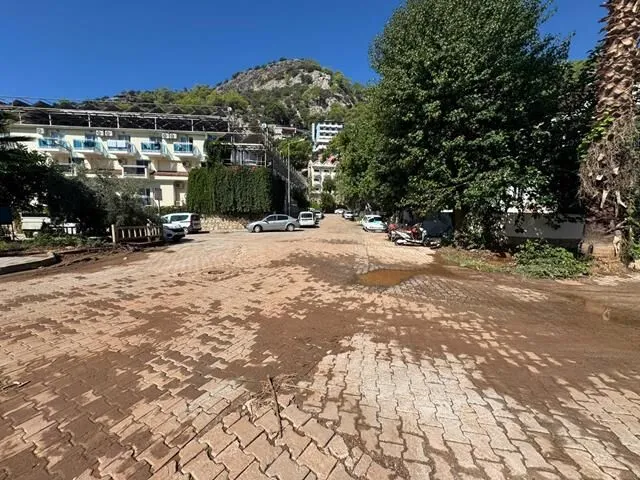
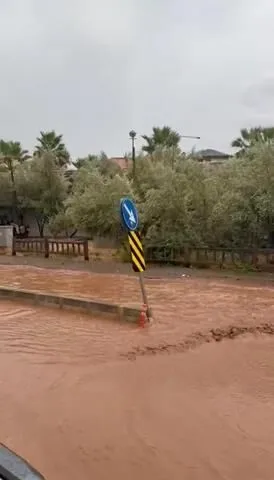
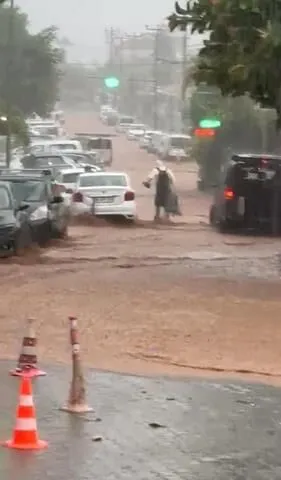
Following Monday’s’s rainfall, which caused damage to local businesses, Kökten expressed his condolences to tradespeople who suffered financial losses. He stressed that the flooding issue has persisted for years, describing it as a “chronic problem” in Ölüdeniz.
“We experience the same problem every time it rains. The reason for this is a problem that has persisted throughout Ölüdeniz’s history. To solve this, sedimentation basins need to be built where the stream begins and a drainage system needs to be established,” Kökten said.
He underlined that the issue not only disrupts daily life but also places a recurring financial burden on local tradespeople, many of whom face losses year after year. Kökten reiterated his call for a permanent solution, urging authorities to act swiftly in constructing the necessary drainage infrastructure.
Source: https://www.fethiyetv.com/baskan-kokten-oludenizin-kroniklesmis-sorunu-acilen-cozulmeli
Foreign Tourists Keep Boat Tours Busy in Fethiye during September
Fethiye, Muğla – Boat operators in Fethiye reported that September was marked by a noticeable drop in domestic tourism, while foreign visitors, particularly from the UK and Russia, filled the gap.
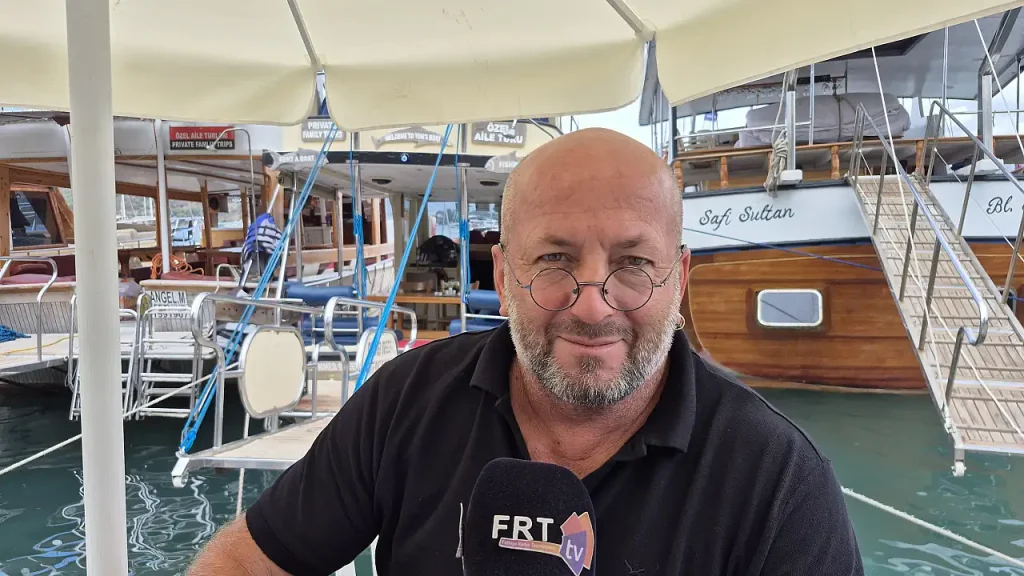
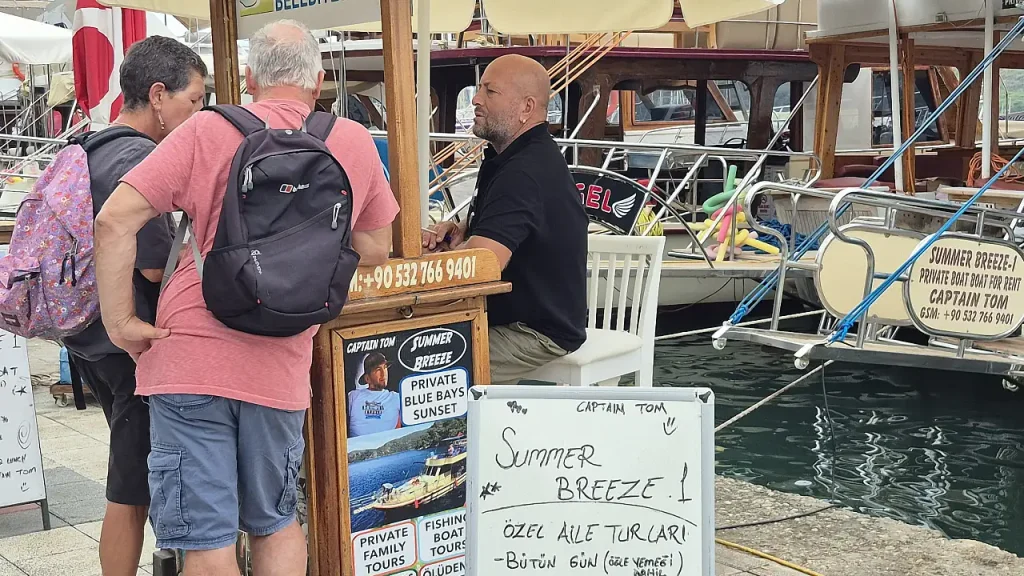
Alparslan Yalçın, a boat owner and operator in the district, said the season has been lively thanks to international tourists. “There are a lot of foreign tourists right now. We’re having a great season with our British and Russian guests. I also have regulars who have been coming for 10 years, and I’ll be hosting them again this week,” he noted.
Yalçın explained that his boat tours offer guests a full experience with breakfast, an open buffet lunch, fruit service in the afternoon, and four to five swimming stops during the day. He added that reservations remain strong and that tours will continue on his private boat until mid-November.
Looking back on the 2025 season, Yalçın said it had been generally positive but not without challenges. “Thankfully, 2025 was a good year. However, tourism is still struggling compared to the past. The high cost of living has reduced the number of domestic tourists, and even foreign visitors aren’t coming in the same numbers as before. British tourists carried us through July, August, and September,” he said.
Despite the difficulties, Yalçın expressed optimism that foreign demand would remain steady through October, extending the season for Fethiye’s popular boat tours.
Fethiye Fisherman Göztepe: “The Old Fishing Industry is Gone”
Fethiye, Muğla – Long-time fisherman Gürol Göztepe has voiced concern over the decline of traditional fishing in Fethiye, saying that both technology and climate change have contributed to the dwindling fish population.
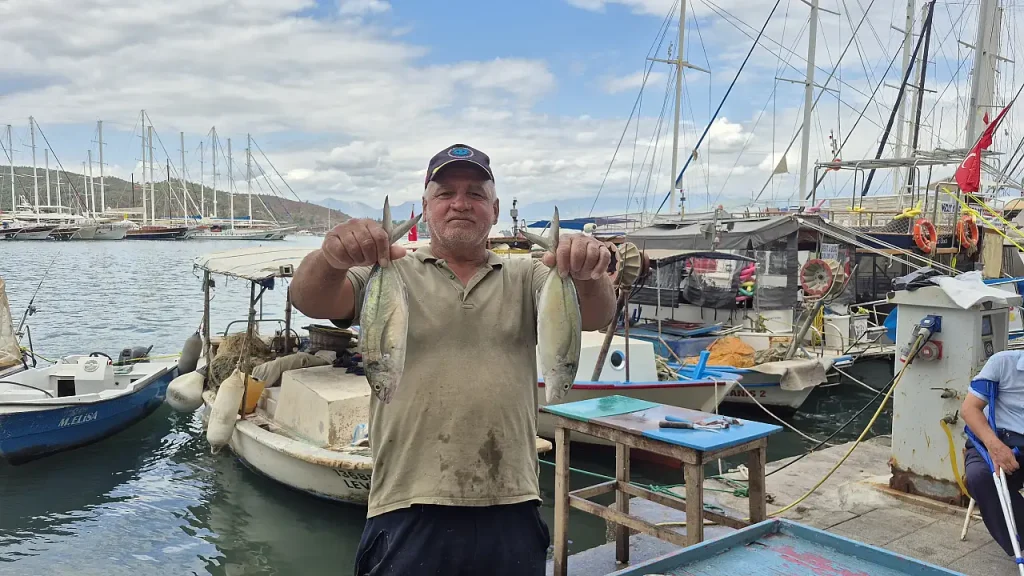
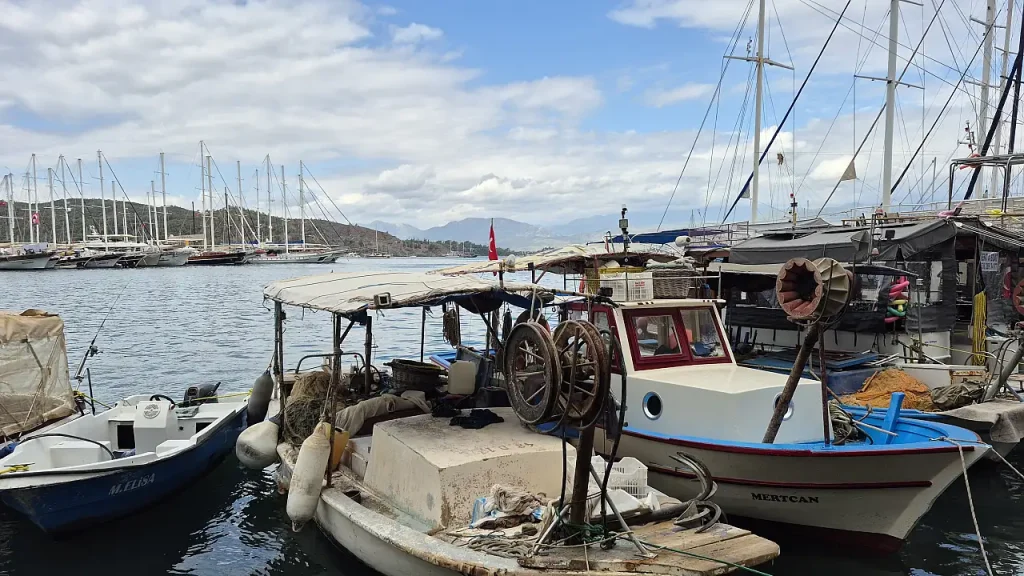
Göztepe, who has been fishing in the region for more than 30 years, reflected on how much the industry has changed. “We go out every two to three days and sell the fish we catch on the beach and at markets. There used to be more fish, but now, with the advent of technology, the fish have diminished. Scanning devices detect the fish, and large purse seines catch them all. We fish with hooks and nets,” he explained.
He noted that the shift has pushed many fishermen to seek work elsewhere. “Most people have now turned to tourism, captaining, and sailing. Some fish in the winter, but in the summer, they mostly engage in boat tourism,” Göztepe said.
At his stall, where he was selling halibut and leer fish, Göztepe lamented the loss of abundance. “There’s no longer the richness of the old days. The number of fishermen has decreased, while the number of people working in tourism has increased,” he added.
According to Göztepe, the once-thriving fishing culture of Fethiye has gradually given way to a tourism-driven economy, leaving traditional fishing a fading livelihood.
Source: https://www.gercekfethiye.com/fethiye-de-balikci-goztepe-eski-balikcilik-kalmadi/107916/
Industrial Climbers Secure Risky Slopes After Floods in Artvin
Artvin, Turkey – Industrial climbers have been deployed to stabilize risky slopes in Artvin following last week’s heavy rains, floods, and landslides that battered the Black Sea province.
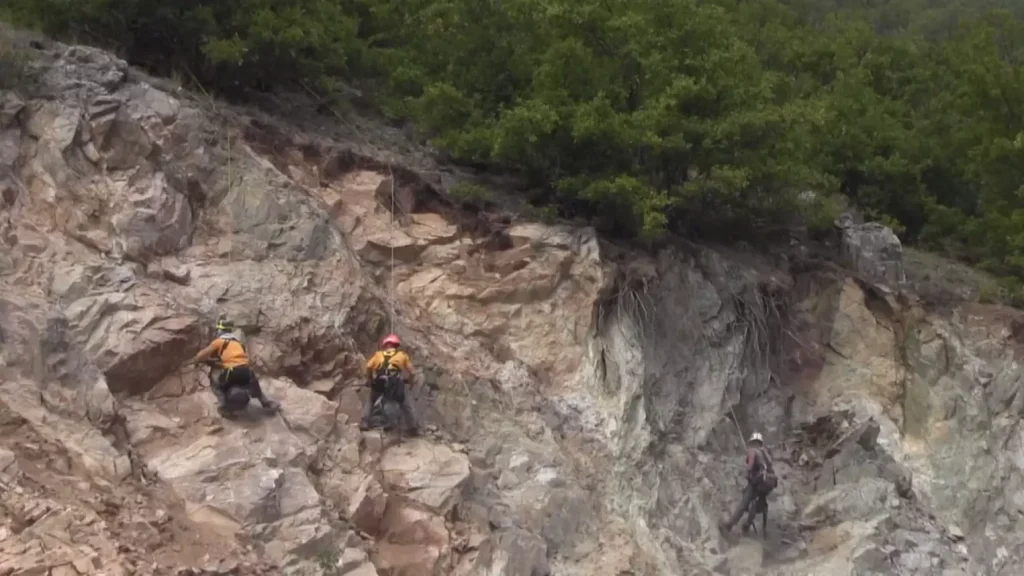
Working under the coordination of the Disaster and Emergency Management Presidency (AFAD) and the General Directorate of Highways, the climbers scale steep mountain cliffs in full safety gear. Using controlled methods, including levers and jacks, they remove loose rocks to prevent them from falling onto the roads below, ensuring safer passage for drivers.
Videos released from the operations show teams working in perilous conditions, carefully dislodging unstable rocks along the region’s vulnerable slopes.
On September 21, torrential rains triggered floods and landslides across several Black Sea provinces, damaging infrastructure and forcing precautionary evacuations. In Artvin’s Borçka district, floodwaters swept away farmland and guesthouses, while the historic three-arched stone bridge collapsed after the river overflowed.
Although most flood and landslide debris has now been cleared, the slope stabilization work continues as a precaution. Officials say the efforts are vital to prevent future accidents along Artvin’s steep mountain roads, which remain prone to erosion and landslides.
Artvin Governor Turan Ergün stressed that authorities are working tirelessly to restore daily life. “We’ve opened our roads to traffic by working day and night, except for a few neighborhoods. The biggest relief is that no lives were lost,” Ergün said.
Local residents have expressed their appreciation for the high-risk work carried out by the climbers. “The work they do is extremely dangerous. Watching them, you feel fear, but their dedication keeps the roads safe,” said Hakan Aydın, a driver who frequently travels the routes.
The operations are expected to continue until all high-risk slopes are secured.
Source: Hürriyet Daily News
Turkey Eyes Bigger Slice of Global Gastronomy Tourism
Ankara – Turkey is stepping up efforts to expand its share of global gastronomy tourism, recognizing food as one of the most powerful motivators for international travel.
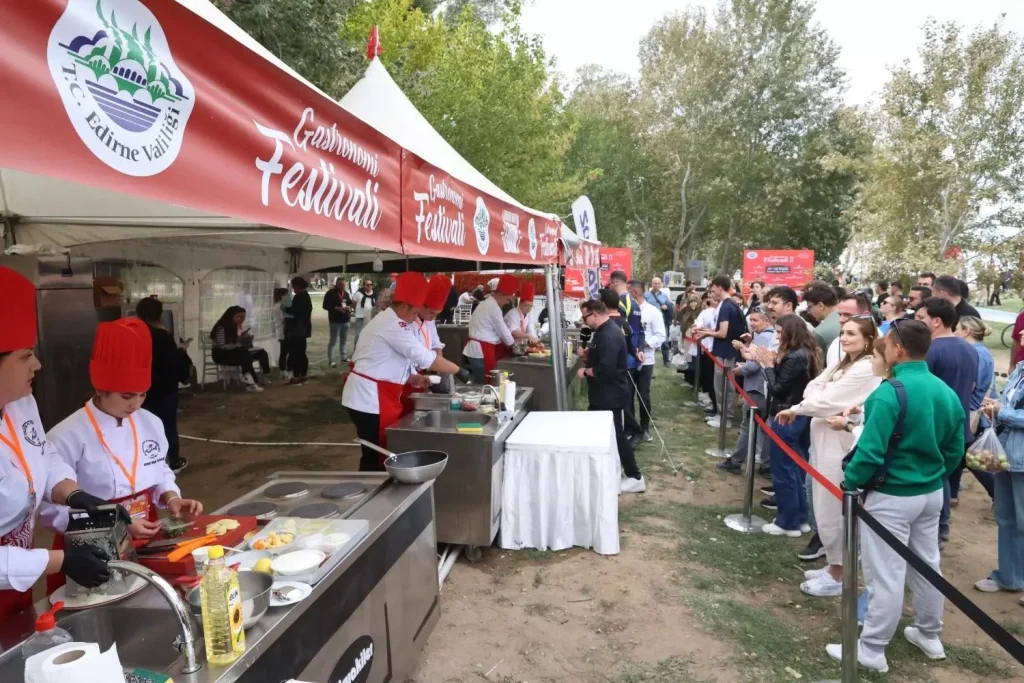
Gastronomy tourism has grown into a trillion-dollar global industry, with many travelers crossing continents to experience local cuisines. Studies show that food-focused tourists spend up to seven times more than regular visitors, making gastronomy a vital part of tourism strategies worldwide.
In Turkey, gastronomy already accounts for nearly 20 percent of total tourism income, and officials are working to build on this momentum. According to official data, visitors spent nearly $11.7 billion on food and beverages in 2024, while more than 900,000 people were employed in food and beverage services by mid-2025 — nearly half of all tourism-related jobs.
Experts say Turkey could strengthen its position by developing a national gastronomy map, promoting culinary tours abroad, and turning food festivals into established international traditions. They also recommend spotlighting regional specialties, strengthening gastronomy education, and elevating the global profile of signature dishes as part of the country’s cultural heritage.
The Tourism Promotion and Development Agency (TGA) has been spearheading efforts through its “Deliciously Turkey” campaigns, with gastronomy featured in marketing across 200 countries. On Instagram, Turkey’s official “GoTürkiye” account shares images of both iconic staples like baklava and kebab and lesser-known dishes such as mantı (dumplings served with yogurt and spices) and sarma (vine leaves stuffed with rice and herbs), drawing strong engagement worldwide.
Food-centered festivals are also expanding. “Gastro” editions of the nationwide Culture Route Festivals have brought culinary celebrations to cities such as Konya, Bursa, and Gaziantep, while celebrity chefs and food influencers increasingly spotlight Turkish cuisine on global platforms.
Restaurants featured in the Michelin Guide are playing a growing role in attracting visitors as well. Culture and Tourism Minister Mehmet Ersoy noted that these establishments “support not only tourism but also local producers and suppliers,” linking fine dining to broader economic benefits.
Turkey’s culinary heritage has also gained international recognition. The provinces of Gaziantep and Hatay and the city of Afyonkarahisar are members of UNESCO’s Creative Cities Network for gastronomy, underscoring the country’s diverse and historic food culture.
As global appetite for authentic culinary experiences continues to grow, Turkey aims to position itself not only as a destination for sun and sea, but also as a world-class hub for gastronomy tourism.
Source: Hürriyet Daily News

